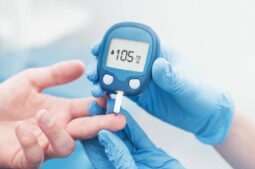
Can I get pregnant after ovarian cancer? As with many complex issues, the only truthful response is: it depends. The main factors relate to the severity of the cancer and its subsequent treatment plan. This could involve chemotherapy and/or different types of surgery, with each of these circumstances putting a different angle on the possible solutions to pregnancy after cancer treatment.
Again, as for most complex issues, there is very often a solution. At IVI we have a whole range of expertise and programmes available, all backed up by ground-breaking research into new techniques and treatments.
Ovarian Cancer and Fertility
Ovarian cancer leads to the rapid proliferation of cells within the ovaries, which can invade and, at times, impair healthy tissues. Any disturbance in the functioning of these reproductive organs or in the production of hormones essential for ovulation may hinder the ability to conceive.
Moreover, the treatment you are prescribed in the event of ovarian cancer could involve chemotherapy, which could damage your ovaries. In the event of surgery, your ovaries or the uterus could be removed. In some cases, it is possible to preserve your reproductive organs, in this instance, you could remain naturally fertile. There is, however, still a risk that subsequent chemotherapy could damage your remaining reproductive organs as well as increasing the chances of early menopause.
The chances of a pregnancy success after having cancer also depend on the time you have between being diagnosed to when you start your cancer treatment/surgery as the time restrictions may affect the type of fertility preservation treatment available.
Assessing fertility before ovarian cancer treatment
Before starting oncological treatment, it’s necessary to assess the patient’s fertility to decide which treatment or technique will allow her to become a mother in the future. The goal is to establish an accurate diagnosis and a roadmap.
At IVI, we conduct the following fertility diagnostic tests:
- Review of the medical history and reproductive background, taking into account any previous fertility treatments.
- Gynecological examination: comprehensive ultrasound for antral follicle count and evaluation of the uterine cavity.
- Anti-Müllerian hormone (AMH) study, which allows for determining ovarian reserve.
Fertility-Sparing Surgeries for Ovarian Cancer
There are various surgical interventions for ovarian cancer or to reduce the risk of developing it. Similarly, these surgeries can be performed in cases where ovarian cysts are detected.
One of them is unilateral salpingo-oophorectomy, also known as unilateral salpingoovariectomy. It involves surgically removing one ovary and one fallopian tube. This reduces estrogen production. This operation does not cause infertility since it preserves one ovary. However, the chances of conceiving naturally are reduced. In some cases, bilateral salpingo-oophorectomy, the removal of both ovaries and fallopian tubes, is recommended.
If the patient has ovarian cysts, it is also possible to remove them without performing a salpingo-oophorectomy. This is called ovarian cystectomy: removing cysts while preserving healthy tissue. This allows for analyzing the cyst and ruling out ovarian cancer and can be performed via open surgery or laparoscopic surgery, depending on the size of the cyst or cysts.
Fertility Preservation Options for Women with Ovarian Cancer
If a woman with ovarian cancer has assessed her fertility options and, in coordination with her oncologist, wishes to preserve her chances of becoming a mother, there are various ways to do so.
Egg freezing
For cancer patients, factors affecting the potential success of this treatment are the age of the patient, the ovarian reserve, as well as how much time is available before the start of a cancer treatment.
The first stage is ovarian stimulation to encourage the production of more eggs than the normal one per month. Once the eggs have been collected, instead of being mixed with sperm to create embryos, they are vitrified. To do that a cryoprotective substance is used to treat the eggs which are then stored in liquid nitrogen at very low temperature.
After the patient has completed the cancer treatment, the eggs are thawed and the IVF process is resumed at a time of the patient’s choosing. In this way, there is a good chance of achieving pregnancy after ovarian cancer, whereas in the past the likelihood was very slim.
Embryo freezing
There’s another choice. It involves freezing embryos until the patient is ready to start fertility treatment. Following egg retrieval, they’re fertilized with sperm from either the patient’s partner or a donor, and the resulting embryos are then cryopreserved until needed. IVI has achieved success rates of nearly 56% with frozen embryo transfers.
Ovarian tissue freezing
This technique involves cryopreservation of the ovarian cortex rather than of oocytes. It has already been used as a method of fertility preservation and has resulted in more than 150 births worldwide. Its aim is to restore ovarian function to allow for a spontaneous pregnancy.
Ovarian tissue freezing is particularly appropriate for patients who need their chemotherapy treatment to begin immediately, leaving no time for ovarian stimulation. This method is often favoured when dealing with pre-pubescent cancer patients. On the other hand, it is not the technique of choice in most of the ovarian cancers. There is a little risk of reintroduction of malignant cells.
How long should I wait after ovarian cancer treatment before trying to conceive?
Determining when to start trying for pregnancy after cancer treatment should involve consultation between the oncologist and gynecologist. The American Cancer Society suggests some experts recommend waiting around six months post-chemotherapy. However, others propose waiting two to five years to minimize the risk of cancer recurrence. Factors influencing this decision include:
- The woman’s age
- The type and stage of cancer
- The type of treatment
Looking to the future with IVI
Oncological treatments get better and cancer survival rates continue to improve. More and more women diagnosed with ovarian cancer have the chance to plan for a future that includes starting or extending their family. By the same token, at IVI we remain at the forefront of research into new techniques and refinements of existing procedures in response to our patients’ needs. Our website carries all the up-to-date news and statistics about our work, for example this blog article on the latest research in fertility preservation.
If you would like to discuss any of these issues and how they may be relevant to your own experience, do get in touch. You can call us or use our confidential online contact form and we will be in touch.





Comments are closed here.